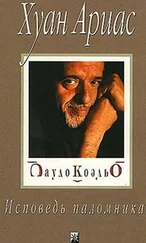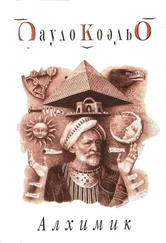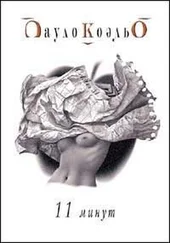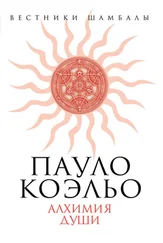Пауло Коэльо - The Alchemist
Здесь есть возможность читать онлайн «Пауло Коэльо - The Alchemist» весь текст электронной книги совершенно бесплатно (целиком полную версию без сокращений). В некоторых случаях можно слушать аудио, скачать через торрент в формате fb2 и присутствует краткое содержание. Жанр: Старинная литература, на русском языке. Описание произведения, (предисловие) а так же отзывы посетителей доступны на портале библиотеки ЛибКат.
- Название:The Alchemist
- Автор:
- Жанр:
- Год:неизвестен
- ISBN:нет данных
- Рейтинг книги:4 / 5. Голосов: 1
-
Избранное:Добавить в избранное
- Отзывы:
-
Ваша оценка:
- 80
- 1
- 2
- 3
- 4
- 5
The Alchemist: краткое содержание, описание и аннотация
Предлагаем к чтению аннотацию, описание, краткое содержание или предисловие (зависит от того, что написал сам автор книги «The Alchemist»). Если вы не нашли необходимую информацию о книге — напишите в комментариях, мы постараемся отыскать её.
The Alchemist — читать онлайн бесплатно полную книгу (весь текст) целиком
Ниже представлен текст книги, разбитый по страницам. Система сохранения места последней прочитанной страницы, позволяет с удобством читать онлайн бесплатно книгу «The Alchemist», без необходимости каждый раз заново искать на чём Вы остановились. Поставьте закладку, и сможете в любой момент перейти на страницу, на которой закончили чтение.
Интервал:
Закладка:
*
"I'm the king of Salem," the old man had said.
"Why would a king be talking with a shepherd?" the boy asked, awed and embarrassed.
"For several reasons. But let's say that the most important is that you have succeeded in discovering your destiny."
The boy didn't know what a person's "destiny" was.
"It's what you have always wanted to accomplish. Everyone, when they are young, knows what their destiny is.
"At that point in their lives, everything is clear and everything is possible. They are not afraid to dream, and to yearn for everything they would like to see happen to them in their lives. But, as time passes, a mysterious force begins to convince them that it will be impossible for them to realize their destiny."
None of what the old man was saying made much sense to the boy. But he wanted to know what the "mysterious force" was; the merchant's daughter would be impressed when he told her about that!
"It's a force that appears to be negative, but actually shows you how to realize your destiny. It prepares your spirit and your will, because there is one great truth on this planet: whoever you are, or whatever it is that you do, when you really want something, it's because that desire originated in the soul of the universe. It's your mission on earth."
"Even when all you want to do is travel? Or marry the daughter of a textile merchant?"
"Yes, or even search for treasure. The Soul of the World is nourished by people's happiness. And also by unhappiness, envy, and jealousy. To realize one's destiny is a person's only real obligation. All things are one.
"And, when you want something, all the universe conspires in helping you to achieve it."
They were both silent for a time, observing the plaza and the townspeople. It was the old man who spoke first.
"Why do you tend a flock of sheep?"
"Because I like to travel."
The old man pointed to a baker standing in his shop window at one corner of the plaza. "When he was a child, that man wanted to travel, too. But he decided first to buy his bakery and put some money aside. When he's an old man, he's going to spend a month in Africa. He never realized that people are capable, at any time in their lives, of doing what they dream of."
"He should have decided to become a shepherd," the boy said.
"Well, he thought about that," the old man said. "But bakers are more important people than shepherds. Bakers have homes, while shepherds sleep out in the open. Parents would rather see their children marry bakers than shepherds."
The boy felt a pang in his heart, thinking about the merchant's daughter. There was surely a baker in her town.
The old man continued, "In the long run, what people think about shepherds and bakers becomes more important for them than their own destinies."
The old man leafed through the book, and fell to reading a page he came to. The boy waited, and then interrupted the old man just as he himself had been interrupted. "Why are you telling me all this?"
"Because you are trying to realize your destiny. And you are at the point where you're about to give it all up."
"And that's when you always appear on the scene?"
"Not always in this way, but I always appear in one form or another. Sometimes I appear in the form of a solution, or a good idea. At other times, at a crucial moment, I make it easier for things to happen. There are other things I do, too, but most of the time people don't realize I've done them."
The old man related that, the week before, he had been forced to appear before a miner, and had taken the form of a stone. The miner had abandoned everything to go mining for emeralds. For five years he had been working a certain river, and had examined hundreds of thousands of stones looking for an emerald. The miner was about to give it all up, right at the point when, if he were to examine just one more stone—just one more—he would find his emerald. Since the miner had sacrificed everything to his destiny, the old man decided to become involved. He transformed himself into a stone that rolled up to the miner's foot. The miner, with all the anger and frustration of his five fruitless years, picked up the stone and threw it aside. But he had thrown it with such force that it broke the stone it fell upon, and there, embedded in the broken stone, was the most beautiful emerald in the world.
"People learn, early in their lives, what is their reason for being," said the old man, with a certain bitterness. "Maybe that's why they give up on it so early, too. But that's the way it is."
The boy reminded the old man that he had said something about hidden treasure.
"Treasure is uncovered by the force of flowing water, and it is buried by the same currents," said the old man. "If you want to learn about your own treasure, you will have to give me one-tenth of your flock."
"What about one-tenth of my treasure?"
The old man looked disappointed. "If you start out by promising what you don't even have yet, you'll lose your desire to work toward getting it."
The boy told him that he had already promised to give one-tenth of his treasure to the Gypsy.
"Gypsies are experts at getting people to do that," sighed the old man. "In any case, it's good that you've learned that everything in life has its price. This is what the Warriors of the Light try to teach."
The old man returned the book to the boy.
"Tomorrow, at this same time, bring me a tenth of your flock. And I will tell you how to find the hidden treasure. Good afternoon."
And he vanished around the corner of the plaza.
*
The boy began again to read his book, but he was no longer able to concentrate. He was tense and upset, because he knew that the old man was right. He went over to the bakery and bought a loaf of bread, thinking about whether or not he should tell the baker what the old man had said about him. Sometimes it's better to leave things as they are, he thought to himself, and decided to say nothing. If he were to say anything, the baker would spend three days thinking about giving it all up, even though he had gotten used to the way things were. The boy could certainly resist causing that kind of anxiety for the baker. So he began to wander through the city, and found himself at the gates. There was a small building there, with a window at which people bought tickets to Africa. And he knew that Egypt was in Africa.
"Can I help you?" asked the man behind the window.
"Maybe tomorrow," said the boy, moving away. If he sold just one of his sheep, he'd have enough to get to the other shore of the strait. The idea frightened him.
"Another dreamer," said the ticket seller to his assistant, watching the boy walk away. "He doesn't have enough money to travel."
While standing at the ticket window, the boy had remembered his flock, and decided he should go back to being a shepherd. In two years he had learned everything about shepherding: he knew how to shear sheep, how to care for pregnant ewes, and how to protect the sheep from wolves. He knew all the fields and pastures of Andalusia. And he knew what was the fair price for every one of his animals.
He decided to return to his friend's stable by the longest route possible. As he walked past the city's castle, he interrupted his return, and climbed the stone ramp that led to the top of the wall. From there, he could see Africa in the distance. Someone had once told him that it was from there that the Moors had come, to occupy all of Spain.
He could see almost the entire city from where he sat, including the plaza where he had talked with the old man. Curse the moment I met that old man, he thought. He had come to the town only to find a woman who could interpret his dream. Neither the woman nor the old man were at all impressed by the fact that he was a shepherd. They were solitary individuals who no longer believed in things, and didn't understand that shepherds become attached to their sheep. He knew everything about each member of his flock: he knew which ones were lame, which one was to give birth two months from now, and which were the laziest. He knew how to shear them, and how to slaughter them. If he ever decided to leave them, they would suffer.
Читать дальшеИнтервал:
Закладка:
Похожие книги на «The Alchemist»
Представляем Вашему вниманию похожие книги на «The Alchemist» списком для выбора. Мы отобрали схожую по названию и смыслу литературу в надежде предоставить читателям больше вариантов отыскать новые, интересные, ещё непрочитанные произведения.
Обсуждение, отзывы о книге «The Alchemist» и просто собственные мнения читателей. Оставьте ваши комментарии, напишите, что Вы думаете о произведении, его смысле или главных героях. Укажите что конкретно понравилось, а что нет, и почему Вы так считаете.











